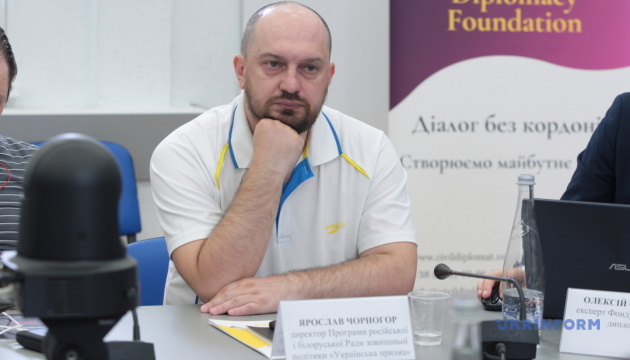
Nuclear energy cooperation between Russia and Vietnam may pose risks to Ukraine and global community – expert
The recent agreement between Vietnam and Russia to enhance their nuclear energy cooperation may pose certain risks for Ukraine and the global community.
In particular, this increases Vietnam's dependence on Russian technology, allows Russia to consolidate its influence in Southeast Asia and creates conditions for circumventing Western sanctions. This opinion was expressed in a commentary to Ukrinform by Yaroslav Chornohor, PhD in History, Director of the Russian and Belarusian Studies Programme at the Foreign Policy Council “Ukrainian Prism”.
“The fact that [Russian Prime Minister] Mishustin traveled to Vietnam and signed this agreement indicates that Putin's visit last year was not in vain for Russia and will continue. For Ukraine, this means that Russia will increase its influence in the Southeast Asian region and gain an additional source of income from the sale of nuclear fuel. Furthermore, if the Russians also build nuclear power plants, they will make their partners, including those in Vietnam, dependent on them,” Chornohor said.
He added that Russian nuclear technologies are, unfortunately, quite powerful. The expert stated that if sanctions are imposed, Russia's position in the nuclear energy sector may gradually become less competitive. However, at present, Russia is a significant player in this sector.
Chernohor also stated that sanctions against Rosatom have been anticipated for some time. However, they have not yet been imposed, as nuclear energy is a critical sector. In this context, he recalled that last year, Western European countries purchased quite significant amounts of Russian nuclear fuel, partly driven by the anticipation of potential sanctions.
Commenting on Vietnam's interest in such cooperation with Russia, the expert suggested that the Kremlin had offered very favorable terms.
"While the details remain unclear, given Vietnam's prior interest in nuclear power plant construction, which it has repeatedly postponed due to cost considerations, Russia appears to be ready to engage in dumping to enhance its political influence and get rid of international isolation in order to draw attention to its projects," he stated.
Concerning Russia's economic capacity for such measures, Chornohor noted "global prices are shaped by competitive forces, whereas in Russia, price determination can be influenced by directives."
As Ukrinform reported, Vietnam and Russia signed an agreement on January 14 to expand cooperation in the nuclear energy sector during Russian Prime Minister Mikhail Mishustin's two-day visit to Hanoi. Rosatom CEO Alexei Likhachev expressed the company’s readiness to assist Vietnam in building nuclear power plants and research centers, as well as sharing and localizing Russian nuclear technology.
